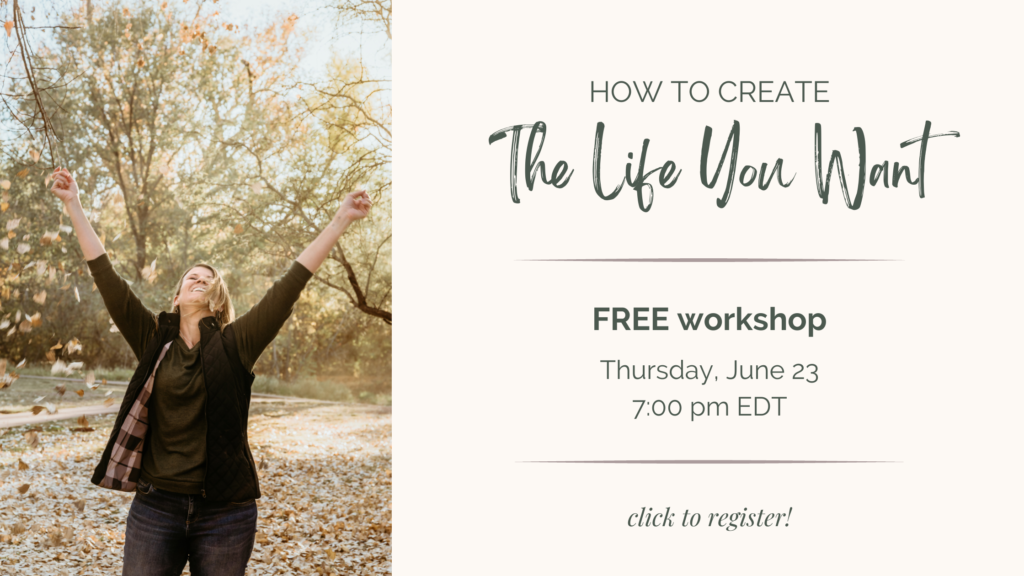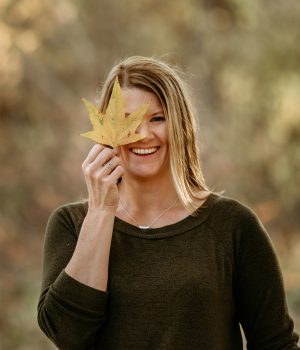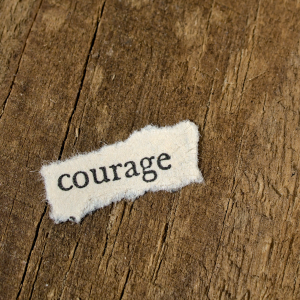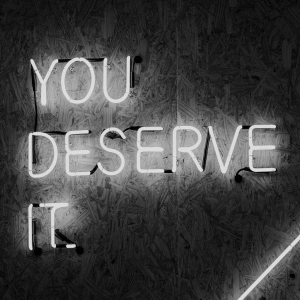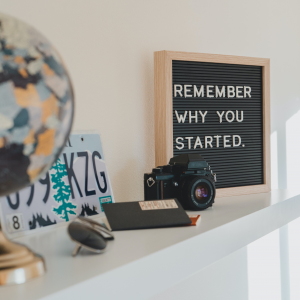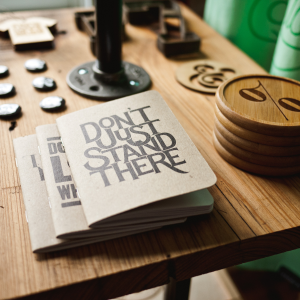Episode 91: In this episode, I’m talking with Heather Aardema of the School of Living Lighter on how to live a lighter life. Heather is a board-certified health coach and helps people live lighter lives by reducing their body, mind, and home clutter.




Show Notes:
In this episode, I’m talking with Heather Aardema on how to live a lighter life. She’s a National Board and Functional Medicine Certified Health Coach. She is the founder of School of Living Lighter, a weight loss methodology grounded in minimalism, functional medicine, and cognitive behavior.
By releasing the clutter in their minds, bodies, and homes, her clients are actively living lighter lives as they tackle their clutter, uncomplicate their lives, and lose weight for good. She’s been featured on popular wellness and minimalism platforms such as No Sidebar, Minimalism Life, Becoming Minimalist, Optimal Living Daily, and Optimal Health Daily. Explore her DIY courses, monthly membership, and private coaching for your lightest self yet.
You’ll learn:
- how body clutter, mind clutter, and home clutter make life feel heavy
- what you can do to lighten the load and live a lighter life
- why feeling uncomfortable is necessary to experience growth and transformation
- how the different types of clutter can show up in your body in the form of weight gain and illness
- all about the “JOMO (Joy Of Missing Out) Diet”
Learn more about Heather:
The School of Living Lighter
Facebook
Instagram
Do you wish you felt more alive and less like you’re on a “hamster wheel”?
I know the feeling. That’s why I created the FREE workshop, How to Create the Life You Want.
So many people get to a point in life where they realize that life feels like a mere existence. Every day feels the same and it is NOT what they thought it would be. They thought they’d feel more… ALIVE.
I’m here to tell you that it IS possible to have the life you want. It’s not going to come easy, at the snap of your fingers, but it is 100% possible.
Not sure where to start? Join the workshop! Click HERE to register.
Resources
Feeling stuck? Don’t know where to start?
Start here: schedule a Strategy Session to discover how you can start.
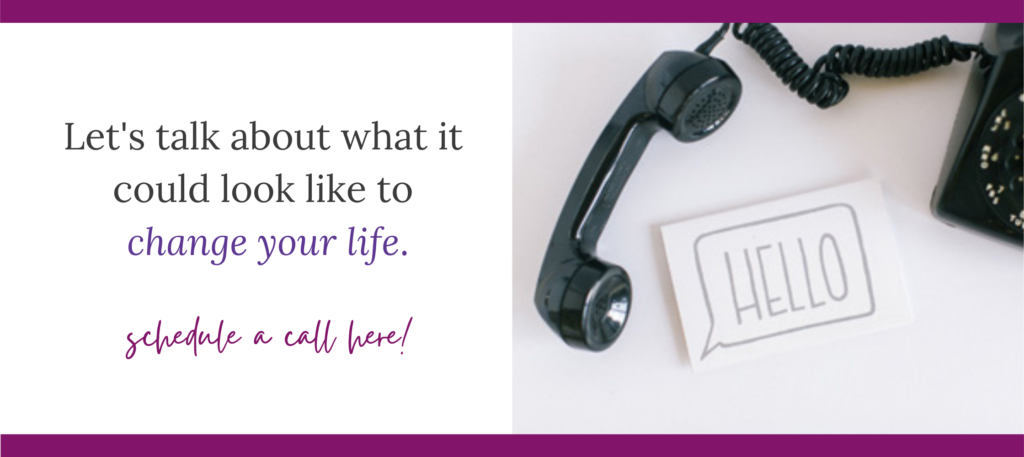
Schedule a call at www.kortneyrivard.com/lets-talk
Visit https://kortneyrivard.com/lovelife to download a free guide on how to create a life you love!
Support the show (https://www.buymeacoffee.com/kortneyrivard)
Other episodes:
- Ep 122: How to Take the High Road When People Say Mean Things About You
- Ep 121: 5 Ways to Make the Mirror Your Friend
- Ep 120: Getting Back on the Goals Bandwagon – Setting Better Goals
- Ep 119: Slow Down! How to Embrace Getting Still and Waiting Patiently
- How to Fix Your All-or-Nothing Thinking
The Real, Brave, & Unstoppable full episode catalog
Transcript:
Ep 91: Living a Lighter Life with Heather Aardema
Kortney Rivard: [00:00:00] Hello, everyone. And welcome back to real at brave and unstoppable. I am really excited to have Heather Aardema here with me today and she is the founder of the school of living lighter. And today we’re going to talk about.
Kortney Rivard: Like living a lighter life. That’s what she helps people do. Um, a lot of people, like I noticed on her website, she talks at the beginning about losing weight, but what I love about her work. She talks so much more. She talks about so much more than losing weight. And today we’re going to kind of dig into that, like how you can approach, like getting your health back or being healthy without obsessing about it.
Kortney Rivard: Because I feel like that’s so important. So, um, Heather, welcome to the show.
Heather Aardema: Ah, thank you so much for having me. It’s it’s a thrill to be.
Kortney Rivard: Yeah. So what I would love for you to do is just tell everyone a little bit about how you got into this. Because you used to work in TV, right. Or [00:01:00] advertising.
Heather Aardema: Yeah. I was working in corporate America for 20 years and I started out in advertising and it was my job to come up with the idea and the commercial that you saw. That told you your life was not complete unless you bought my client’s thing. So it was the hook. It was the single most compelling idea. And we, um, all my clients did this, of course it’s business, right?
Heather Aardema: And so I would then sit and focus groups and I would observe people responding to our commercials. These are commercials before they would air and help us understand which ones were the ones we wanted to use. And so it was a. It was, it’s a very different place than where I am today. I used to believe that idea that more was more and that things could bring happiness.
Heather Aardema: Long-term sustained happiness. And I now understand today that yes, you can have that. Short-term [00:02:00] happiness with new things, new items, you get a little dopamine hit when you hit the buy now button, but for right, for true happiness, it comes from with. And, um, if you don’t look with them, you’re always going to be looking outside and not finding what you really want.
Kortney Rivard: That’s so in line with what I talk about too, it’s like, I talk a lot about creating your life from the inside out. And as long as you create it from the outside in, you will never have a place to come back to. And you’ll, you know, if your life situation changes. Then you don’t have a foundation.
Kortney Rivard: You’re always like your life situation changes. You go through a hard time and you’re left with all this stuff, but it means nothing. So when you build it from the inside out and you actually have that foundation, like you’ll never get lost. You’ll always have a home to go to.
Heather Aardema: It’s a way to take your power back, right? We give our power away to so many people and things [00:03:00] and items. And so by creating that foundation from the inside out, I love how you say that. Uh, you, it’s just a very empowering thing.
Kortney Rivard: Totally. Totally. Yeah. It’s and it’s really, for me, like that’s the foundation of living. Uh, an amazing life is, or let you know, as living that lighter life that you talk about and like, it, it, yeah. Tell us a little bit about, you have the school of living lighter, which I think is such a great name, but tell us a little bit about that.
Heather Aardema: Well, it’s. I think it’s always been inside of me. This idea of wanting to be lighter life can be really heavy for all of us. It’s 50 50. There are good things that happen. There are bad things that happen, regardless of who you are, regardless of who you’re married to, how much you weigh, where you live.
Heather Aardema: It’s half good. It’s half bad. And I think that I was going through a period of time. I was still working in corporate and in the beginning, corporate felt [00:04:00] really meaningful to me. And I was inspired. I was challenged. I was traveling all over the world and, um, I was feeling really fulfilled, but towards the end I was, I was struggling.
Heather Aardema: I was. Going into the office. There wasn’t much to do. We were losing clients and it was kind of like a land grab for the few projects we had people’s behavior. Wasn’t very good. All of the politics, it was just kind of, it’s kind of icky. And I would leave for the office I felt like I was, I was wasting my time.
Heather Aardema: I felt empty. I’d come home. After not doing very much. And I would see my kids have been productive with their nanny and my husband had been really productive with his business. He does bathrooms and kitchens, and so I would stop by and see what he was doing. It was just as art. And I would say, Hmm, what I do today?
Heather Aardema: I looked. I looked at Facebook and then I felt like, [00:05:00] gosh, I can’t believe I’m being paid all this money. And I’m not really doing very much. I mean, maybe I did a little bit more than that, but it, towards the end, I didn’t feel that way. And so I was feeling pretty heavy about it and there’s something called the golden handcuffs, right.
Heather Aardema: Where you don’t want to leave because that’s your security blanket. But you’re miserable. And so if you decide to live miserable your whole life, this life is so precious. Right. And my husband kind of teasingly, but there’s a hint of truth to everything he said, oh, Heather just do it for like 10 more years.
Heather Aardema: And then we’ll be set. And I said, I can’t, I feel so empty. I would rather be really poor financially, but rich in the way I’m spending my time and the thoughts that I’m having, then the opposite. And so I decided to walk away from corporate, from the, the salary, from the perks, from all of [00:06:00] that and to do something totally different.
Heather Aardema: And when I did that, felt so light. When I made that decision, I felt so lifted and it hit me that we always have a choice. We always have a choice and we will make so many different decisions throughout the day. But every time we come to a decision point, we can go heavy or we can go light. And I realized in that moment that if I had stayed in corporate, it would have felt so heavy that I would have been going heavy, even though life would have been easier financially, it would have been so very heavy.
Heather Aardema: And so I made the lighter choice. Now, I think it was the harder choice, but there was so much growth that came out of the discomfort that I felt when I went the lighter way. And so that hit me. We always have a choice. We can always go light if we [00:07:00] want to, if we have the courage to do so. And that was where school of living lighter was born.
Heather Aardema: So yes, I help women declutter their minds or bodies in their homes so that they create lighter lives with the goal of losing the weight for good, but that weight can manifest in so many different ways. Physical pounds, mental pounds, emotional pounds. And so school living lighter was born and. As a family, within the school, we are living lighter,
Heather Aardema: we’re losing weight. Our homes are becoming more peaceful and serene and calm. Our relationships are more supportive because we’re looking at all aspects of life. Our calendars are no longer quite as full because we’re [00:08:00] learning how to say no. So it’s called the instead of the quick yes. And a slow, no, it’s a quick, no.
Heather Aardema: And a slow. Yes.
Kortney Rivard: I love
Heather Aardema: And so we’re learning, we’re learning how to live lighter and with all of us living lighter, that just has so many positive. It’s like a positive domino effect in all of our lives and to all of us, all of the people who come into contact with us,
Kortney Rivard: yeah.
Kortney Rivard: that’s so great. I’m so aligned with everything you’re saying. It’s interesting, the podcast episode that airs this week is all about courage. I love that you said like it was the hardest. But you had the courage to step into that harder choice because at the end of the day, so much growth.
Kortney Rivard: Right. I experienced that when I quit my day job, it was like, uh, it was scary. And so that, that challenge has it’s really, it’s spurred so much growth. And like, that’s what I talk about on this podcast a lot [00:09:00] is that you don’t have to do like the golden handcuff life, like, just because it’s safe doesn’t mean it’s better.
Kortney Rivard: And I think like we need to kind of rethink our definition of what safety is and what success is because there are all different forms of it.
Heather Aardema: I think you’re so right in that. Absolutely. I’ll say leaving corporate and, and, and to those of you who are listening and thinking, I love my corporate job. I’m so happy for you. That’s amazing. I want you to love what you’re doing, whatever that thing is. For me, I just reached a point where I thought there’s gotta be more.
Heather Aardema: I’m the one that needs to create that, but I need to be able to create some space so that I can listen to my intuition and so that I can start to create a goal. When I left corporate, I did [00:10:00] join it was it’s called the functional medicine coaching academy. So that’s where I went. I had some situations and conditions and functional medicine really helped me.
Heather Aardema: Functional medicine is all about getting to the root cause of your physical symptoms instead of using a bandaid where conventional medicine is more about the bandaid approach, um, for chronic illnesses, uh, for acute things, medicine is amazing, amazing. Uh, but I went to the functional medicine coaching academy and I wasn’t quite sure in the beginning,
Heather Aardema: what is a coach? And my husband’s like, what is a coach? I’m like, not quite sure. It’s different than my cross-country coach in high school, but, or my cheerleading coach. And it’s, it’s more than accountability. And over time I’ve since realized I’ve been able to, you know, create that dream, create that goal and go after it.
Heather Aardema: And becoming a coach and you know, this it’s one of the, it’s one of the biggest honors [00:11:00] to partner some with somebody and, and watch their transformation and ask the hard questions that a friend won’t ask them, help them see that their thoughts are shaping their realities and, and to be that person for them.
Heather Aardema: And so it was, it was a scary choice and I wasn’t quite sure what I was getting into, but that’s okay. Sometimes you just need to leave the security blanket, put yourself out there to really create some change in your life.
Kortney Rivard: Yeah, next right step. Right. I always like to think of things in terms of the next right step. And it’s interesting, like recently, like I mentioned, when I quit my day job, it was this whole new set of challenges. And what I found is, I found myself in so much stress. Like we talk about living light, like that was not light.
Kortney Rivard: It felt so heavy. And so just cluttery in my brain. And I was like, how, why what’s going on? Like, I, I did this work and I was in a place for so long [00:12:00] of just being like, so content, no matter what, even though all this stuff was going on around me. And I realized what was happening is I was focusing on the future.
Kortney Rivard: Like, what if, what if this, what if this doesn’t happen? What if I don’t this? What if I fail at this? And I realized this and it was like, oh, okay. So I need to come back. I don’t know what is going to happen. I don’t know what, what is, so I just need to come back to this moment and live in it. And that feels so much lighter.
Kortney Rivard: So I, yeah, I love what I appreciate so much what you said there.
Heather Aardema: there’s a quote by Henry Ford and I might butcher it a little, but he said, um, let’s see. How did he say it? Thank you can, think you can’t, either way you’re right.
Kortney Rivard: Yeah.
Heather Aardema: And I decided I needed to think I can. I needed to think I could, when I asked the what ifs I needed to frame them in a [00:13:00] positive way, but what if I do succeed?
Heather Aardema: What if this does work?
Kortney Rivard: Yes.
Heather Aardema: What if, and again, it’s I’m married. I have two kids. I was the better breadwinner before. This was a big decision for the family because all of a sudden it was saying to my husband, okay, you are solely responsible for the family. And, and, and that, that made him nervous. Understandably, it had been pretty easy when I had been working before.
Heather Aardema: Right. Like it just money just was coming in. And so we had lots of conversations about it, there were times where he didn’t see the future. And for any of you that are thinking, oh my gosh, this is something I want, but I need to have my, I need my partner to fully understand. Sometimes you have to like, let that go because as long as one of you sees it,
Heather Aardema: it’s [00:14:00] okay. And so for my husband, he would say, Heather, if anybody can figure out this entrepreneurial thing, it’s you, I just don’t know how you’re going to do it because he was using his lens in life. Right. And so that quote from Henry Ford, think you can think you can’t either way you’re right. I printed up that quote.
Heather Aardema: I printed off a couple of, a couple of other quotes that were really telling and inspiring to me. And I taped them on different areas of the house. At some point they became untaped, I’m not sure by whom, but, uh, it was what I needed for the moment when things felt really hard.
Kortney Rivard: Yeah.
Kortney Rivard: I love that quote and just so you know, my audience is very familiar with me butchering quotes. So I say that all the time, there’s this quote. I can kind of remember it, but it’s kind of goes like this.
Kortney Rivard: So . They’re, they’re used to that. But Yeah.
Kortney Rivard: When you said you started [00:15:00] asking yourself the question, well, what if it, what if it does work? What if I can? That was the reason that my first coach said, I, I was sort of interested in coaching and I was like, you, I had no idea what a coach was.
Kortney Rivard: And I threw some twist of weird events. I ended up realizing that a coach might be able to help me. And she did. When I started to get interested in coaching, I said, well, I don’t know. I don’t have the money. You know, there are all the reasons I don’t have the money to do this, blah, blah, blah. I don’t know if I can.
Kortney Rivard: And she said to me, well, what if you can, what if you can? And I was like, Oh. Well, I didn’t really think about it that way. So it’s sort of like, you know, giving, I talk about equal airtime to the other possibility and like, I’ve started, it’s interesting though, like lately I’ve started to ask myself that like, what if this does work or what, and it’s funny how sometimes that actually drives up a lot of really interesting stuff.
Kortney Rivard: Like, like, you know, you, you start to feel the. This is where I’ve become [00:16:00] very aware of the fear of success sometimes is like, you start to feel this feeling of almost like it might, it was different for everyone, but a little dread or a little like something resistant. And so it’s it’s. yeah.
Kortney Rivard: I mean, it’s also a great way to like, figure out what’s holding you back and to kind of dig under the surface a little bit and look at that.
Heather Aardema: For sure there there’s, there’s a lot of fear there. Relationships. What if relationships change? What if, and that was a big one for me. And then I realized, wait a second, Heather, this is self-sabotage because a relationship is not a thing. It’s just the thoughts that I’m choosing to think about a certain person.
Heather Aardema: And so just because you have more success doesn’t mean you have to change those thoughts about that person. But I had a lot of fear what will change when things, um, when things start to really pick up steam for me and. Some of those initial [00:17:00] fears that I had, none of those things happened. Oh my goodness.
Heather Aardema: So I had, that’s kind of like mental clutter, emotional clutter, mind clutter, I call it right. All these thoughts in your head when you’re ruminating and you’re spinning and they’re not doing you any good. When you are thinking about others and wishing they would change. Having manuals for them, they should be behaving this way or that way.
Heather Aardema: Mind clutter, mind, clutter, even thoughts about yourself, where you think that you’re not worthy, you’re not enough or on the opposite spectrum, you’re too much. And that was something for me. That was something that I still work on in terms of letting go. I’m too loud. I’m too much of this, too much of that.
Heather Aardema: And, yeah, we’re all works in progress, aren’t we? We all have mind clutter. We all have body clutter. We all have home clutter, but when we adjust those, those three, life definitely gets lighter.
Kortney Rivard: Yeah. And It’s really great how you you’ve separated [00:18:00] them out like you approach it’s not just one thing. It’s not lumped together. And one thing I think people get so overwhelmed when they think about just all the clutter and the way that you break it out into mind, body and home, or your surroundings and whatnot, it makes it like compartmentalizing. It just makes it a little more, I think fun, first of all. But also it just kind of helps people get their head around it. I think like, oh, like my house could be contributing to like my weight or my house could be contributing to my negative thoughts and or, you know, combining them all.
Kortney Rivard: But it is so, they are, everything is
Heather Aardema: It’s so connected. Yeah. It’s so connected. So you could be looking at your closet at your clothes thinking, oh my gosh, I have way too many clothes. And you could be looking at some things that were maybe given to you by a loved one, but you won’t ever wear. And you could be like, not only are those things that you’re not going to wear a physical clutter.
Heather Aardema: But then you’ve [00:19:00] got this mind clutter about them because you’re keeping them out of guilt or out of duty when you don’t want to have them. So it’s like a net negative. You have the physical clutter and you of the mind clutter about the physical clutter. So it is all connected. But using this construct absolutely helps us look at things in a simpler fashion.
Heather Aardema: It doesn’t have to be so complicated. It really doesn’t. And so, yeah, I like, I liked the mind clutter, the body clutter, the home clutter, and how they interact is just, it’s fascinating to me.
Kortney Rivard: Yeah.
Kortney Rivard: one thing that I, when you said, it doesn’t have to be complicated. One thing that I noticed when I was looking through your, your, the stuff on your website, or in your community, um, you said something about, um, like you have. A small list of things that you don’t touch, but you have a really big list of things that you love.
Kortney Rivard: And so it’s like, well, there’s those few things, and you also talk about, I’ll have you talk about that in a minute, but the joy of missing out versus fear of missing out, I love [00:20:00] that. And so it’s like, well, you have the smallest of things you stay away from because you know, the consequences of having them, but then it’s like the joy of missing out on those negative consequences or the, you know, the consequences of that.
Kortney Rivard: And then you have this whole big, like list of things that you, you know, are in forest. So speak more of a, you know, talk more about that.
Kortney Rivard: The, the list of small list of things and how that helps people, like make it simpler.
Heather Aardema: Well, I call this the JOMO diet and I like -the word diet. I take the original meeting where diet is lifestyle. It’s not this crazy obsessed calorie counting point tracking, uh, society that we live in today. And definition that we have today. Diet, it’s original meeting lifestyle. And so it’s the JOMO diet.
Heather Aardema: And this was born because, well, I’ll tell you I was born with an unusual amount of FOMO, fear of [00:21:00] missing out.
Kortney Rivard: I’m in that club.
Heather Aardema: Yes. I had FOMO for everything growing up. I’m the second out of three daughters and I always wanted to be included. I always wanted to know what the conversation was. I always wanted to have the biggest piece of cake, more breakfast toast. I just wanted to make sure I got it all. And this is really what I was thinking.
Heather Aardema: Right. More was more. I hadn’t come upon the idea that less could be more, or I could go the less but better routes. And I did wake up a few years back and I realized the FOMO was not doing me any good at all. Right. This feeling of missing out wasn’t causing any thing good to happen in my body either.
Heather Aardema: Right. It was increasing my cortisol, my stress hormone, because I had this perspective. And so when I [00:22:00] identified or heard the term JOMO and it’s joy of missing out, and it’s a popular term in the minimalism community and minimalism is a movement that is growing and growing, and it’s not about deprivation and restriction.
Heather Aardema: Instead, it’s all about this beautiful pathway toward intentionality and towards the things that matter most to you and toward an abundance of peace and happiness versus towards an abundance of clutter and chaos and disruption and distraction. And so I coined the term, the JOMO diet, and it can be used
Heather Aardema: for a food protocol, but it can also be used in so many different other ways. And so in terms of food, Yeah. So often I’ll have clients come to me and say, oh, I want to lose weight. I probably can’t eat anything. Can I? And it also is [00:23:00] so overwhelming and so not fun. And listen, if we’re trying to lose weight and we’re not having fun, the weight is not going to stay off.
Heather Aardema: If it comes off, it’s not going to stay off. And so you have to have fun. And so I said, okay, let’s do the JOMO diet, meaning that we only identify one, max two things that are probably getting in the way of where we are and how we want to be, how we want to show up. So when it’s food for me, originally, one of those things was gluten.
Heather Aardema: And if I didn’t eat gluten, that meant that I wouldn’t wake up swollen. That I wouldn’t feel obsessed about food, that I wouldn’t have brain fog. And I wrote down all these things and I’m like, oh my gosh, this is my joy of missing out. And guess what? There are plenty of gluten-free items [00:24:00] that may not taste exactly the same, but still tastes delicious in their own right.
Heather Aardema: And so by letting go of gluten, a whole world was opened up to me and I felt so much better and so much more present in that world. And so not eating gluten, but that doesn’t mean I’m not eating all kinds of fruits, all kinds of festvegetablesl kinds of protein, all kinds of fat. There is so much good, yummy food in my life, but that one decision of putting gluten on the list was life-changing for me.
Kortney Rivard: Yeah.
Heather Aardema: There are a few other things. And sometimes you’ll put something on the list and you’ll experiment for awhile maybe not much will happen. So then it’s like, okay, maybe that’s not the thing to put on the list. Maybe that’s not such a big deal. Maybe you can have that thing, but it’s something else, something bigger that’s getting in your way.
Kortney Rivard: Yeah, I probably need to implement that. Um, [00:25:00] I like my wine.
Heather Aardema: Let’s talk about wine. take a moment to talk a little
Heather Aardema: about wine?
Kortney Rivard: yeah, we should take a moment about that.
Heather Aardema: Okay. So I am 47 years old. I have had a lot of wine in my life. I’ve had a lot of alcohol in my life. I remember came from that FOMO. I always wanted to partake. If there was a party I was going. College. I got very good grades in college, but I also, if I could have been graded on partying, I would have gotten an a there too.
Kortney Rivard: Yes.
Heather Aardema: I showed up. Whatever it was, I showed up. And so I drank a lot and I had a lot of fun. I don’t regret any of it. It was wonderful. And so I looked back on that with fondness. Fun time in my life. But it hit me. And now I’ve lost track of how long ago this was, which is a good thing, because it means that the wine, the alcohol, the pull that used to have on me is no longer there at all.
Heather Aardema: And so I woke up [00:26:00] one morning and I said, you know what? I’m done. I’m complete. I had so much alcohol, the first half of my life. I think the second half of my life is going to be fine. And it was one of those where I always wake up with a little bit of a hangover, even if it wasn’t very much because into my thirties, I didn’t drink nearly as much.
Heather Aardema: And, and so I thought what’s the joy of not having alcohol, no hangover. I’m completely present. Not going to say anything I regret later, I would always get a pimple on the middle of my forehead. That was so annoying, right? That was so annoying. And so the joy of missing out for alcohol for me today that I am completely present in whatever conversation it is and that I don’t need to tune out.
Heather Aardema: And if I want that tune out, I will go take a walk around the block. And I [00:27:00] loved alcohol. I’ve had a sincere love for alcohol in my past, but I just decided that for me, my life was complete without it. And I’m not against alcohol. The only time where I asked people to question their relationship with alcohol is only if they’re using it to buffer or numb out from some feelings that feel uncomfortable.
Kortney Rivard: Yeah, Yeah. That’s so important. That brings up another question, is you know, and I’m sure some of you listening probably are, you might be thinking this like, okay, well, like let’s just say I put sugar on the list. For example, it’s really easy to say I’m going to put sugar on the list, but then it’s like the actual doing of removing sugar from the list.
Kortney Rivard: So talk about that a little bit. Like how can people, you know,
Heather Aardema: well, okay. Such a good question, because with sugar, I only know one person that’s been able to go [00:28:00] completely sugar-free meaning he doesn’t eat fruit either. Um, I think it’s four years now. It’s only one person. And so when somebody says I want to go sugar-free to me, I pause. And the reason why I pause is because I look at the reality of our world.
Heather Aardema: We have stores everywhere. We have restaurants everywhere. Most of them might even be walking distance. Going sugar-free 300 years ago would have been much easier than it is today. And so just like, I don’t count calories. I think that’s mind clutter. Sometimes when we take sugar and depending on how we define sugar, but if we say I’m not going to have any sugar whatsoever, we don’t learn how to show up in the reality of what today is.
Heather Aardema: So. Fruit has sugar, right? I’m a big fan of fruit. I say, eat all the fruit fruit’s great. It comes with so many minerals and [00:29:00] vitamins and vital nutrients. That it’s a good thing. Uh, but with the sugar, what I like to suggest is learning how to splurge and learning how to plan those splurges so that they can fully be fully enjoyed.
Heather Aardema: And so that there’s no regret afterwards, it’s the same as wine, right. Which is liquid sugar. It’s the same thing. Like if you plan it. And you fully enjoy it. It is a positive in your life, but if you don’t plan it and then you eat it in response to anger, frustration, a conversation that with the wrong way, and then it leaves you
Heather Aardema: with even more negative feelings, then it’s a net negative. And so I like to look at alcohol, sugar, all kinds of foods, even gluten they’re neutral. It just depends on your relationship with them and what they do in your body and what you decide you want to do with them.
Kortney Rivard: I think that you hit the nail on the head [00:30:00] with with just the buffering or the numbing out, what that stuff is like your relationship with the thing. It doesn’t have to be a bad thing. Like, you know, so many people say, well, I can’t have this now.
Kortney Rivard: Or if that I’m, you know, trying to watch my health, I can’t, or, you know, get healthier. I can’t have this, or I can’t have that. And it’s like, well, I mean, unless you have a health condition that mandates, like you really can’t have that you know, you don’t need to completely restrict that stuff. You can still be healthy.
Kortney Rivard: And like you said, you are present, you are enjoying it. You’re being an intentional. And if you can’t do that, then it’s, you need to look at the mental clutter. You need to look at the thoughts that are behind it. Like what, why are those feelings causing you to use that food as a you know, as a method of numbing out or a means to numbing out.
Kortney Rivard: And that’s, you know what, it sounds like what you do a lot of is helping [00:31:00] people work with that mind clutter.
Heather Aardema: Absolutely. A lot of us learn our behavior from childhood and we carry on these habits through adulthood and it’s um, again, food is neutral. Alcohol is neutral. What I’m suggesting is have intention that not also is equal, that you’re allowed to have standards. So for example, you mentioned I don’t gluten don’t do gluten.
Heather Aardema: If somebody comes by and brings us bring some cookies store bought cookies. So not, not like a gourmet store, but just like the $2 cookies off the shelf. Probably not going to have those. I might give them to somebody else. I may toss them because they weren’t made with intention. But if somebody comes by with something that’s homemade, and that’s coming from the heart.
Heather Aardema: I am going to enjoy that. And I’m going to, you know, there are a lot of, uh, a lot of folks saying right now, that’s, what’s, what’s more important than what the actual food is, [00:32:00] is our mindset while we’re eating it in terms of how we assimilate the nutrients and how we assimilate the different parts of the food. And so, you know, there are some that can go off to Europe who don’t do gluten here that are like, oh, I was fine in Italy.
Heather Aardema: I had to gluten. And, uh, what is the difference? There’s a lot of different variables there, but sometimes I think it’s the mindset that is just so incredibly powerful.
Kortney Rivard: Yeah, it’s amazing how we sabotage ourselves with just that mindset and those random autopilot thoughts. And like, I like to think about it in terms of a computer program, like before the age of seven, where like just recording or bringing all the programs in. And we don’t, we don’t really stop to like, think about the programs like this, just like a computer that, you know, you get, and it’s got all this underlying stuff that you have no idea, but like, you have to be conscious enough to decide, oh, I want to open like a safari or I want to open my calendar.
Kortney Rivard: Like you have to actually like, decide that. [00:33:00] And if something’s not working, you just don’t use that program. Like if you don’t. And so it’s like, if you’re not intentional about it, those programs just keep running and, and you, don’t your mind, the thoughts behind like that numbing out, for example, like if you don’t stop and get intentional about the program, then you’re not going to fix the thoughts that are causing you to numb out.
Heather Aardema: Yes. So often what we’ll do with. So, everything we do is because of an emotion or a feeling that we want to feel. Um, when I left corporate, I call it my corporate clutter. When I, when I let go of my corporate clutter, uh, the feeling I was seeking was one of freedom. I wanted creativity back in my life. I felt like there was no creativity.
Heather Aardema: I wanted inspiration. And so I left corporate in search of [00:34:00] those feelings and I found them what I found a lot of uncomfortable feelings along the path towards those. And so it’s, yeah, I guess at the end of the day, whatever it is that you want to experience, find that courage to embrace the discomfort, to continue to move forward.
Heather Aardema: Somebody smart said discomfort is the price of growth. And so those feelings
Kortney Rivard: good.
Kortney Rivard: That’s so true. So good.
Heather Aardema: Yes. Yes.
Kortney Rivard: The discomfort in the feeling or dealing with the embracing, the discomfort. It’s hard and people it’s like, we want to push those, we don’t want to feel bad. So it’s, we’ve been taught and we’ve been taught to push them away. Like, oh, don’t cry or, oh, here have a cookie. Like it’ll make you feel better.
Kortney Rivard: And so we just have been taught that we don’t want to feel bad feelings, but honestly, and I [00:35:00] don’t know if you can relate to this too. It’s like, if you let them in and you just kind of sit with them, they go through you so much faster and the more you resist them, the harder it is.
Heather Aardema: Oh, my goodness. Yes. Said, so that was said so beautifully. When we resist them, they just get bigger and bigger when we, um, Ignore them. Then we are just kind of buffering with something else or dumping out with something else. But it’s, uh, yeah, those feelings are everything. I like to ask my clients in the beginning.
Heather Aardema: How do you want to feel along this journey towards a lighter life? And they’ll say, well, I want to feel excited and encouraged and then I’ll say, okay, what negative feelings are you willing to feel along the journey as well? Because usually we want to change and we just want it to be easy and it doesn’t have to be as hard as it [00:36:00] is as long as we’re open to that discomfort.
Heather Aardema: And so I’ll say, are you willing to feel uncomfortable? Are you willing to feel hungry at times. So for example, I intermittent fast and it has been life-changing for me, meaning the way, the way it comes to life for me is that my first meal happens late morning instead of happening at the crack of dawn.
Heather Aardema: And I have a very nice, big, big, big, robust, beautiful meal. Then I have another one usually. And, uh, But am I hungry in the morning? Sometimes I am. Sometimes I’m not. And when I am hungry, does that mean I should immediately go feed myself? Well, no, if I want to be in alignment with what my vision is. And so I’ll tell you, I used to eat breakfast at the crack of dawn.
Heather Aardema: And when I had that breakfast, I obsessed personally, I obsessed about food all day long. [00:37:00] And what it’s been fasting has enabled for me as I have that meal later. And I don’t obsess about food anymore. It has opened up so much space in my head to be free to think about other things and to do those things that I wasn’t doing in corporate that I get to do today, I get to be creative and imaginative.
Heather Aardema: I get to feel free. And so that discomfort is the pathway for sure.
Kortney Rivard: That was so beautifully said.
Kortney Rivard: You don’t grow if you don’t get uncomfortable, it’s, it’s just life, you know? My friend Bethany, who was part of our summit. So anyone who was signed up for unapologetically.
Kortney Rivard: You, you got to know Bethany a little bit, but you know, she taught, she always uses a pen to, so for those of you, like listen to, you can visualize, but a pen where it’s like, you’re at the bottom and then, you know, you grow, grow, grow, and you get to the top, but then, you know, it just comes back up here. So you’re having to grow back again.
Kortney Rivard: So you’re always given these new challenges, which are an opportunity. You know, grow to the next level and you [00:38:00] know, in our community, I don’t know if you’ve heard this saying before, but new level, new devil, you always have like a new, a new thing to overcome with growth, but, Yeah.
Kortney Rivard: that’s, that’s such an important thing to remember that. I love how you ask your clients too like, what uncomfortable feels like, what are you willing to feel to have these good feelings?
Kortney Rivard: Because yeah, like you said earlier, life is 50 50 and the thing about it is, and I think Brene Brown says this too. If you want to numb out the uncomfortable feelings, you also numb out the joy and the feelings that you really want to feel. You can’t selectively numb out feelings.
Kortney Rivard: So it’s important to remember that, like, if you want to really live your life, like fully alive, you have to be willing to accept those downs, those dips in your life, to be able to, you know, experience the peaks, the high points too.
Heather Aardema: It really helps with commitment. And so, so often, here are the two things that help with commitment. Uh, paying money, investing in [00:39:00] yourself
Kortney Rivard: Yeah.
Heather Aardema: helps with commitment. And then what we’ve been talking about, willing to feel uncomfortable. Talking about that openly, that can help tremendously with commitment as well.
Kortney Rivard: Yeah, I find too, that will, the investing in yourself is so huge. I know there have been times for me where it’s like, that’s what I really needed was accountability, but also encouragement. And then also just the, like with coaching, just somebody to pick my brain, you know, to show me my mind, like to because we all have blind spots and it’s so hard to pick those out yourself because you’ve been believing that stuff for your whole life.
Kortney Rivard: So like you, you can’t pick it out. Cause it’s just, it’s the program running.
Heather Aardema: I’ve been so enjoying this conversation. I love it. You know, one other thing that I love about coaching, and I think this just comes naturally to coaches is that we are able to see the potential in the person sitting across from us. It’s so [00:40:00] easy to see the potential. And so when you don’t feel your own potential to spend time with somebody who does and who can lift you and who can help you see the path it’s worth everything.
Heather Aardema: Everything I would not be where I am today without my coaches.
Kortney Rivard: Oh, totally, totally. Yeah. A hundred percent for sure. Yeah. That’s what I was going to say is that, you know, when we work with clients, it’s like, it’s not just accounting. It’s accountability. Yes. And it’s also help with managing the discomfort. Most people, once they hit that discomfort are going to be like, screw this.
Kortney Rivard: I’m not doing this. I don’t want to feel this. So like, you need somebody to kind of then like, just show you, what’s getting in your way. And usually it’s a thought,
Heather Aardema: My declutter.
Kortney Rivard: Yeah,
Kortney Rivard: It’s the mind clutter. Yeah. Yeah. And so like, that’s what it is beautiful to work with people and help them believe in themselves that they can do this work too.
Kortney Rivard: I, [00:41:00] it is, that’s like the most rewarding part of being a coach, I think
Heather Aardema: I agree. I agree. Can I talk about another former clutter briefly? So home clutter, it’s not just all of the stuff. You know that we bought. So the closets that are so full with clothes or the countertops that have so many items on them that you can’t see the countertops any longer. Home clutter can also be
Heather Aardema: sensory overload. So all of the messages streaming from the screens, the TV screens, the iPads, the phones. And we started this conversation now I shared a little bit about my corporate life working in advertising. And the goal with the TV advertisement was to hook you. So you bought the thing well with our news stations, it’s the same thing.
Heather Aardema: They want to hook us. And as humans we are much more attracted to the negative stories, than [00:42:00] the positive stories. And so a lot of home clutter is if the TV is on constantly. I’m not saying be ignorant, but I’m saying doesn’t need to be on all day long. Does it even need to be on every day? Look at that home clutter.
Heather Aardema: That kind of clutter can create other clutter. It can create worry and overwhelm, and we will indulge in the worry and the overwhelm of the state of the world or whatever it is. And that will paralyze us and the own good work that we want to put out there. And it’s very normal. It’s very human. I was talking on the phone with my mom and she’s like, aren’t you worried about this?
Heather Aardema: And about that. And. I said no. And the reason why I’m not is because it’s not going to do any good. My worry internalized is only going to increase my stress hormones. And it’s only it’s, it’s just going to create body clutter, [00:43:00] actually inflammation. It’s going to cause our thoughts absolutely have an impact on what goes on in the body.
Heather Aardema: And so I said, no, I’m not going to worry about that. Instead. I’m going to focus on what I can do and the good I can put into the world and how I can lift others. Because if more people are lifted, which is what a coach does in part, but if more people are lifted, if more people are living lighter, the world would be a better place.
Heather Aardema: There will be a domino effect.
Kortney Rivard: yes, yes, absolutely.
Heather Aardema: Yeah.
Kortney Rivard: And, and social media that’s so much clutter. And I mean the amount of people, well, you know, you see it all the time and I’m guilty of it too. I’m not saying that I’m great about it. I don’t think that I’m, as far as some people, I, I, I do pretty well not being on social media all the time, but I mean, it really does, like you see other people’s
Kortney Rivard: you know, highlight reels. And a lot of people feel like bad about themselves because their life doesn’t measure up. Or it’s [00:44:00] that comparison that comes in. And Yeah.
Kortney Rivard: just all the stuff that I love, how you, everything relates. Like you’re the, the home clutter, body clutter, the mind clutter, it’s all like holistically one.
Heather Aardema: yeah. I mean, there, there there’s research to support that connection as well. Right. So we know, we know with. Someone perceives clutter, the cortisol increases. There was some ethnographic research that identified that. So when people described their homes as messy with projects that were unfinished and cluttered, their cortisol went through the roof.
Heather Aardema: Whereas people who described their homes as finished and clean and calm, their cortisol remained the same. Cortisol is that stress hormone. And I’ll tell you when I feel stressed, I can feel it. I, you know, my kids, I don’t know why my kids are immune to the impact that clutter has, but of course it’s perception.
Heather Aardema: And so I see the clutter and [00:45:00] sometimes I’m like, oh, I just want to go eat those chips. And if there’s not cluttered, I’m just inspired and motivated to go dive in and create something or to go exercise or to go, just add more lightness to the world. So when we adjust that physical clutter, it absolutely impacts
Heather Aardema: how we’re showing up. It impacts how we’re living and, and it impacts our purchase or decision. The decisions that we make there was one really interesting study where they took the respondents, put them into two, one group, worked at a messy office. One worked in a clean office. They did the same paperwork and upon leaving, they were offered an apple or a candy bar.
Heather Aardema: And if you worked in the clean office, you’re twice as likely to choose the apple. So our surroundings are so powerful and can absolutely impact how we’re showing up. And so ask yourself if you don’t like how you’re [00:46:00] showing up, get curious about it and then identify the clutter in your life. What are the distractions, distractions in your life that are removing you from, from how you want to be your vision of your best
Heather Aardema: you.
Kortney Rivard: I resonate so much with that, the clutter in the house when things are messy and it, and it didn’t even occur to me for a long time that that was causing me stress. And then I kind of, I pinpointed it once and was like, oh, I feel so much. Well, we talked about feeling lighter, lighter, and freer when the house is clean and yes, that, I never really thought about it before, but yes, I’m way more likely
Kortney Rivard: to be like intentional in my day. And because it, it, when it’s cluttery, it’s like I’m outside of myself, like worrying about the clutter or like saying, oh, I hate that my house is so messy. And then when it’s clean and neat or picked up, even if the clutter’s in pile a little pile, like at least it’s a neat pile.[00:47:00]
Kortney Rivard: I do. I just definitely like it’s, I’m able to be intentional because my brain is not outside thinking about all the things I have to do to pick up the clutter.
Heather Aardema: Yes, you’re, it’s so much lighter. So all these things are matter, but they’re more energy than matter. And so if you perceive it as clutter, it’s going to have a low, energetic vibration. And so one way to climb that vibrational ladder is by decluttering and creating this lighter experience because all those things are taking your energy, whether you’re conscious of them or not, they are still an energy suck.
Heather Aardema: And so. If you want to feel lighter, look around, look to the left, look to the right, ask yourself what are three easy things that I could let go of that I could give to somebody else. As long as they want them. You don’t want to give your clutter to somebody who’s going to think of it as clutter. Uh, but what are [00:48:00] three things that I
Heather Aardema: let go of today? And so often a lot of my clients will say, oh, I can’t declutter clutter because it’s just so hard. What will I do with the China? Or what will I do with all the things with sentimental value that is like jumping off the deep end before you learn how to swim. Go for the easy things first, and then you lightened your home and all of a sudden you’re going to want to lighten the way you eat.
Heather Aardema: And you’re going to want to take better care of yourself. You’re gonna start to sleep better. All of this lightness begets more lightness.
Kortney Rivard: Oh, that’s so good. So I think that’s a good. Spot to stop. That’s so good. The takeaway. So everyone listening, what are your takeaways? Think about your takeaways from this. And I love that you said what are three things? What are three little things that you can do? So people listening do that.
Kortney Rivard: What are three things that you can do? They could be really tiny. To lighten your life today? Or this week or whatever it is whenever you like get to it. But three [00:49:00] things, that’s not that hard. So do that. So it’s been really amazing talking to you today. It’s been a great conversation and if people want to learn more about you and the school of living later, we’ll put this in the show notes too.
Kortney Rivard: Just tell us though where they
Heather Aardema: Yeah. So my website is www.schooloflivinglighter.com. There are some free materials there. I like to process life through writing. And so I’ve got a lot of essays there. Personal essays about life, about clutter, mind clutter, body clutter, home clutter. So that’s a good place to go. I’m also on social media, on Facebook at school of living lighter and then on Instagram,
Heather Aardema: it’s my name is Heather Aardema.
Kortney Rivard: Okay. And we’ll put Heather’s spelling of her last name and we’ll put all the links. We’ll put all the links in there, so you don’t have to write this down. You can just go click.
Heather Aardema: Yes.
Kortney Rivard: So, all right, well, thanks again, Heather, for being with us today.
Heather Aardema: Thank you. This has been [00:50:00] so enjoyable. Thank you so much. My heart feels light.
Kortney Rivard: Awesome. I love it. Thank you.
